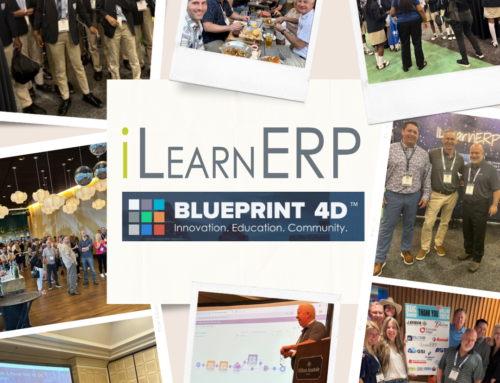 Our delivery team at iLearnERP is fresh off of two recent Go-Live events. These experiences are important junctures for our team as we always want to learn from our implementations. Each company we work with presents their own set of unique opportunities and challenges, just as each individual learner within each of the companies we work with has different needs and obligations during a Go-Live. As a member of the delivery team, I have various responsibilities during the process of getting a project live from recording UPK (User Productivity Kit) topics, to writing documentation, to testing processes, etc. While producing these individual pieces that fit into a larger Go-Live puzzle is important, they will all fall short of creating successful, confident users if we’re not also attentive to individual learner needs and experience.
Our delivery team at iLearnERP is fresh off of two recent Go-Live events. These experiences are important junctures for our team as we always want to learn from our implementations. Each company we work with presents their own set of unique opportunities and challenges, just as each individual learner within each of the companies we work with has different needs and obligations during a Go-Live. As a member of the delivery team, I have various responsibilities during the process of getting a project live from recording UPK (User Productivity Kit) topics, to writing documentation, to testing processes, etc. While producing these individual pieces that fit into a larger Go-Live puzzle is important, they will all fall short of creating successful, confident users if we’re not also attentive to individual learner needs and experience.
So why is attention to individual learner needs crucial, and what types of needs might be most important? The insights I’ll share below do not necessarily reflect the importance of our knowledge of the software or technical capabilities that come with our Go-Live implementation, whether it is an upgrade or a completely new install. These are a given! What we find can actually be more difficult than getting through technical issues is providing the kind of learning environment that individuals need in order to be confident and successful.
Each individual learner presents a dynamic set of learning needs. Neglecting the different aspects of their make-up is a real missed opportunity for trainers. In addition to attention to different learning styles (more below) a holistic approach to the learner that also takes into account the work related demands that can take away from their time or ability to learn or train as needed is very important. For learners, this means being able to show up for an instructor led training class, or to set aside that time to get through training videos. Making sure learners have the time they need to devote to their training outside of the day-to-day duties for the company is a key to successful implementations and is often overlooked both in the planning process and in the days leading up to a Go-Live.
In past blogs we’ve talked about intrapersonal, verbal/linguistic, and logical/mathematical learners, but I’ve also found the terms ‘deductive’ and ‘inductive’ to be very helpful when evaluating individual learner needs. Deductive learners are the more ‘traditional’ learners, learning from specific instruction that is detailed and that can be demonstrated. Deductive learners are sometimes more interested in the ‘why’ of something than they are interested in the ‘how.’ Inductive learners learn primarily through doing a task and are more comfortable with uncertainty as they are not as interested in the ‘why’ behind a certain process. Deductive learners benefit from materials such as specific documentation of steps, whether they be written or provided by an on-site instructor or through video instruction. Specific, step-by-step instruction that is logical is often all deductive learners need to feel comfortable. Inductive learners, by contrast, can feel lost in documentation, even if it is clear and detailed. They will not feel comfortable until they get a hands-on experience and will often rely more on their own inference and experience than on an instructor. For these learners, trainers often have to take more of the role of a learning partner to get the inductive learners the kind of experience and sounding board they need during the learning process.
One last point that I like to remember when working with customers is that even though we are the trainers, we are always co-learners along in their process. We of course all try diligently to avoid any mistakes or errors during an implementation, but unfortunately sometimes this is a reality we have to face! We always leverage these mistakes as an opportunity to learn and grow for the future. If we are vulnerable as trainers, we can help learners become more comfortable with mistakes and better prepared to move past them to higher learning and further success.
Like this? Please share.



